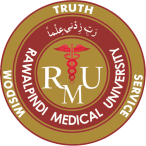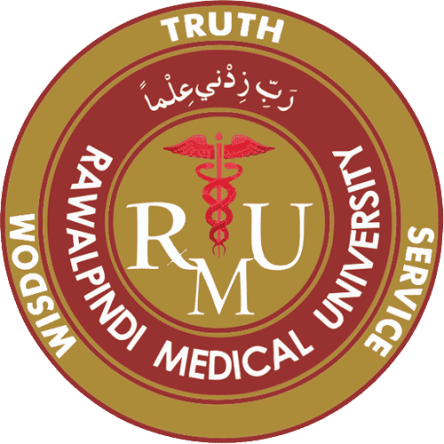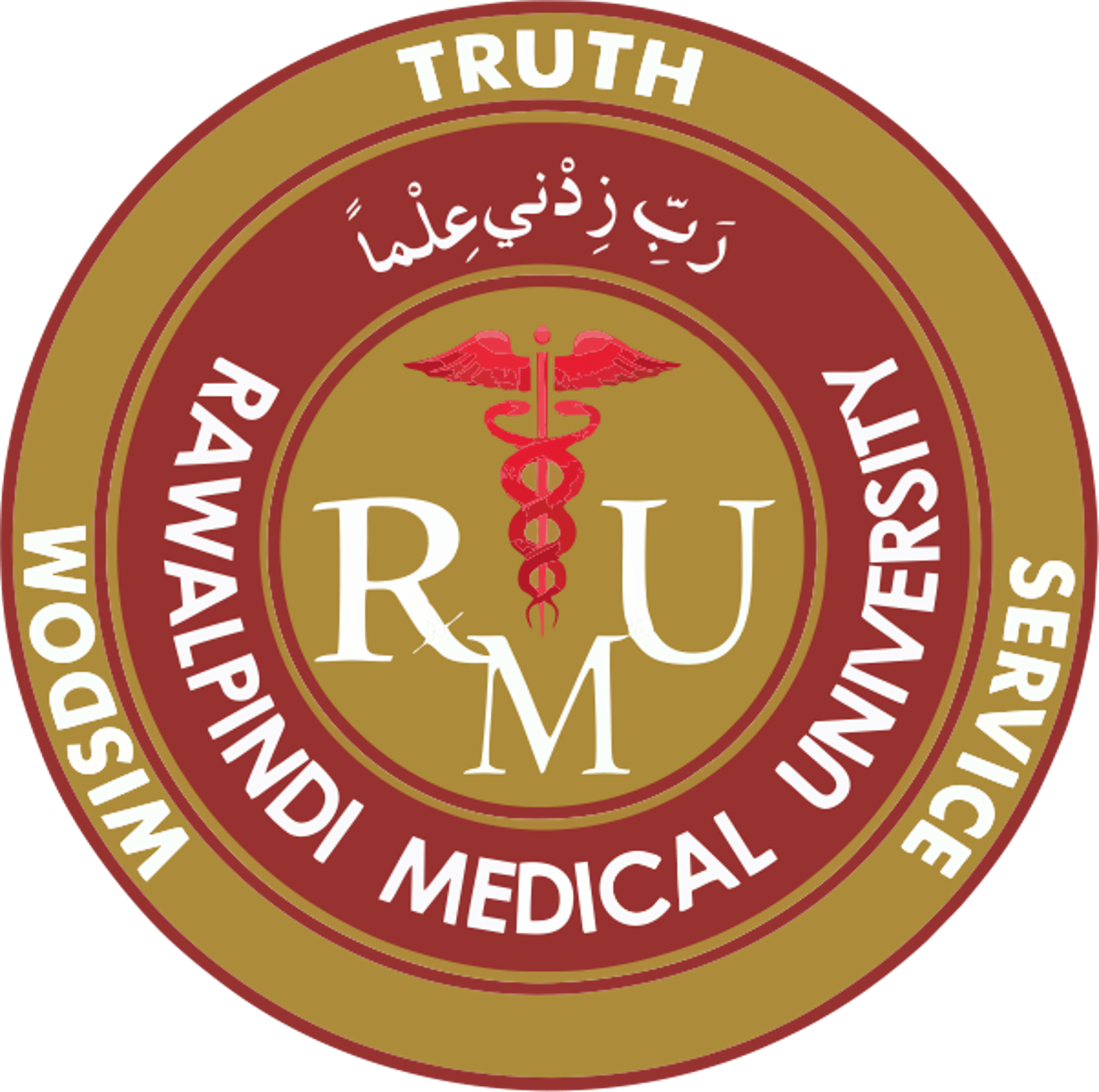Research & Innovation
Research Forum
Research Unit of Rawalpindi Medical Univeristy was established in February 2014. It is located in Medical Education Department, New teaching Block of RMU. Dr Faiza Aslam, Research Coordinator of RMURMU and Allied hospitals is in charge of Research Unit. The Research Unit carries out all the research related activities including facilitation and individual counseling of undergraduates, post graduate trainees and faculty of RMU regarding Health Systems Research, proposal formulation, basic and advanced research methodologies, data entry and analysis and manuscript writing.
APPRAISAL BY INSTITUTIONAL RESEARCH FORUM
Any individual (students, faculty members or doctors of either RMU or those belonging to any other institution) interested in conducting research or data collection phase at RMU or any of its Allied Hospitals (Benazir Bhutto Hospital, Holy Family Hospital or District Head Quarters Hospital) must get approval by Institutional Research Forum of RMU. The standard procedure is as follows:
- Download any of the following Research Application Proforma, accordingly:
- Research Application Proforma for Undergraduates of RMU.
- Research Application Proforma for Faculty members/Departmental Research of RMU.
- Research Application Proforma for Post Graduate Trainees of RMU.
- Research Application Proforma for Visitor Researchers.
- Fill it electronically. Get it endorsed by your supervisor/Head of department/Principal Investigator and submit its eight copies along with research proposal and data collection tools at research unit of RMU. It should be submitted at least one week before meeting. Kindly read the undertaking section of application form carefully.
- Then you will have to make a five minutes presentation on PowerPoint in monthly meeting of IRF, to be held on second Saturday of every month.
- The IRF will review and approve it and within one week period you will receive approval letter of IRF endorsed by all members. Only then anyone can initiate research.
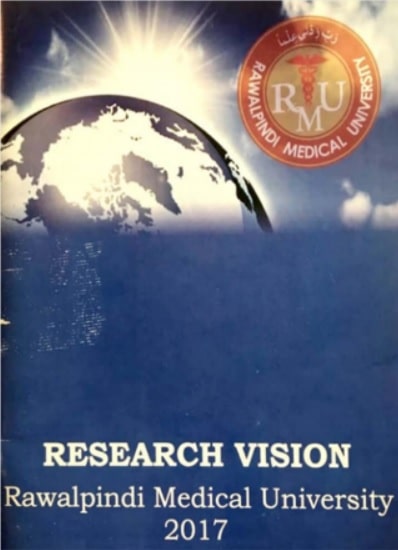
RMU Research Model
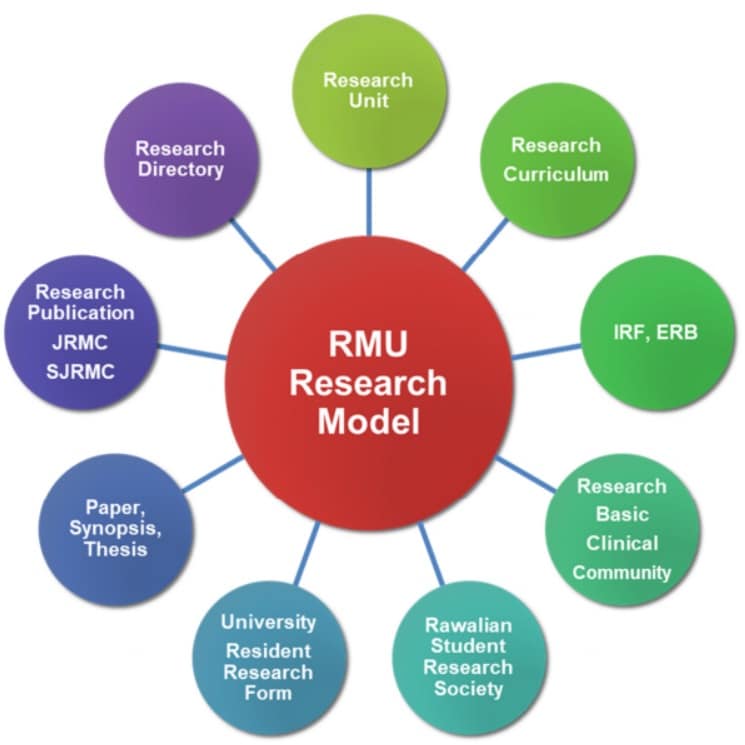
In lines with our research vision, we are actively involved in developing and establishment of model research infrastructure, involving
- Establishment of Institutional Research Forum (IRF) and Ethical Review Board (ERB)
- Establishment of Board of Advance Studies Research (BASR)
- Establishment of Postgraduate Research Forum (PGRF)
- Student Journal
- Faculty Journal
- Research Directory
- Development of Community Research Model
- Development of Hepatitis Free Rawalpindi Project
Faculty Research Directory
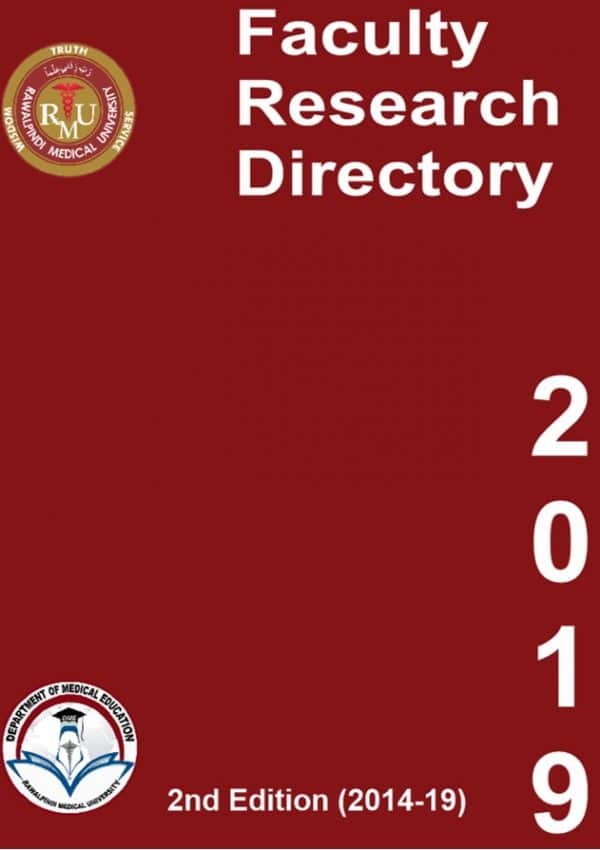
Faculty Research Directory
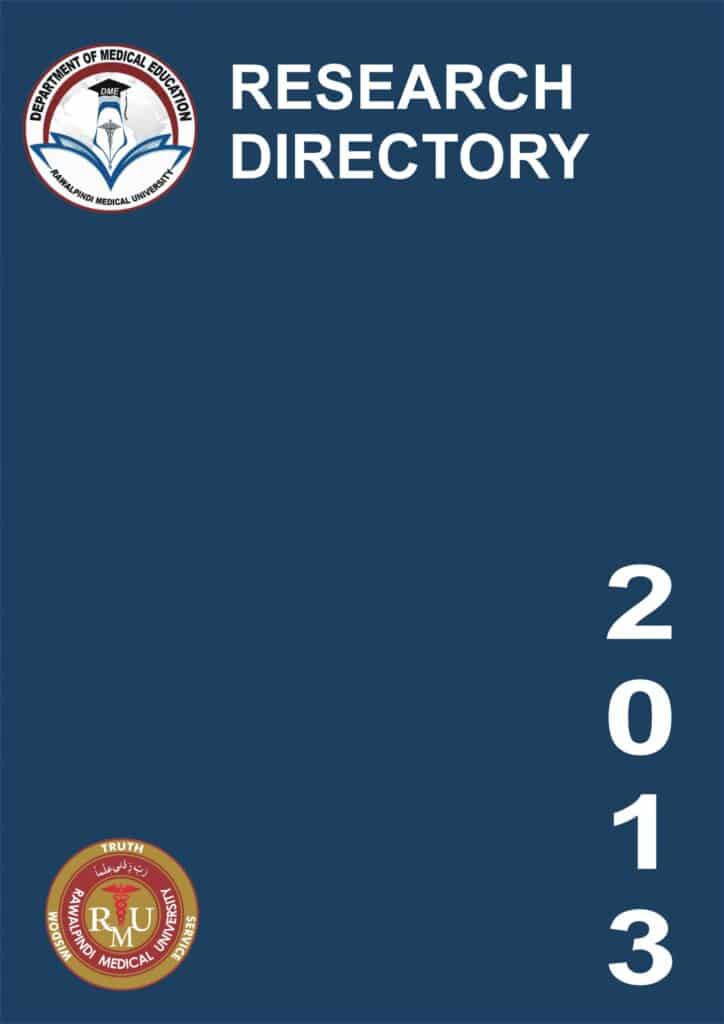
Research Directory
Community Research Model
We at RMU strongly believe in the importance of Research & Innovation whose benefits reflect upon the community and eventually the whole nation. Based on the same principle, the Rawalpindi Medical University has developed the RMU Community Research Model, that lays special emphasis on the promotion of research in the current health challenges that we are currently facing in Pakistan including Hepatitis, Congo Fever, H1N1 Influenza infection as well as Dengue. The unique feature of this model is not just emphasis on the exploring the treatment options for these health challenges but taking a practical, unique and cost-effective approach of nipping the evil in the bud by promoting the awareness and education about the methods of prevention of these diseases among the masses, defining new strategies of prevention, as well as researching on effective modes of communication and education of the community about the health-related matters.
